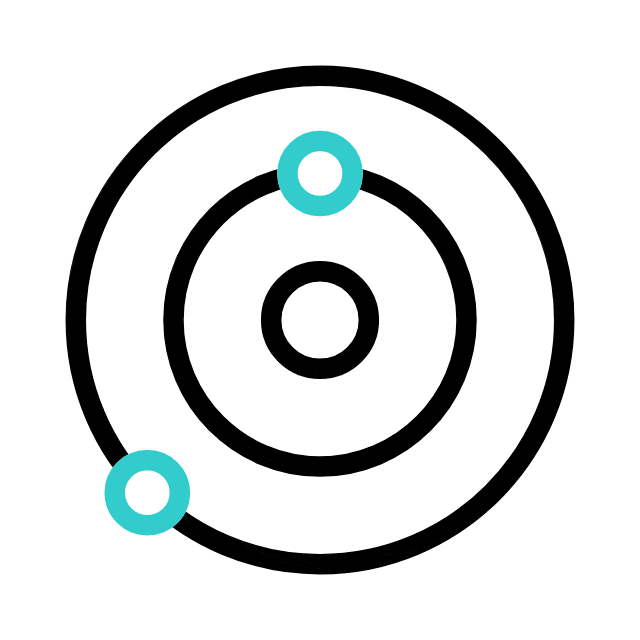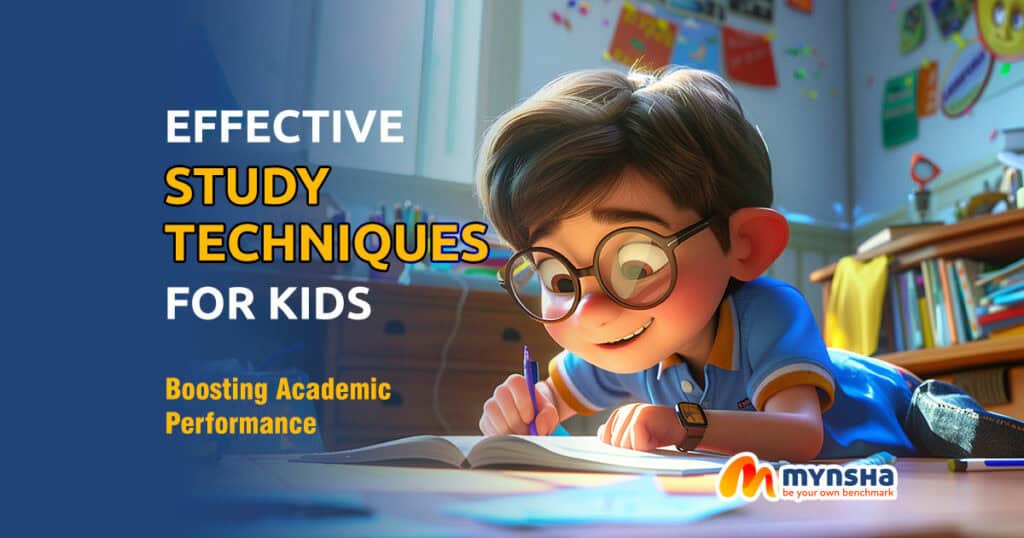In today’s competitive academic environment, children face immense pressure to excel in their studies. As parents and educators, it’s crucial to equip them with effective study techniques that can boost their academic performance and make learning enjoyable. This comprehensive guide delves into various study techniques for kids, providing valuable tips and strategies to help them study effectively and achieve their academic goals.

Understanding the Importance of Effective Study Techniques
Effective study techniques are essential for several reasons:
- Improved Retention: Techniques that enhance memory retention help children remember information better and for longer periods.
- Better Time Management: Good study habits teach kids to manage their time efficiently, balancing schoolwork with extracurricular activities.
- Enhanced Understanding: Effective study methods promote a deeper understanding of the material, moving beyond rote memorization.
- Increased Confidence: Mastering study techniques can boost a child’s confidence in their academic abilities.
- Reduced Stress: Proper study habits can alleviate the stress and anxiety associated with exams and assignments.

Key Study Techniques for Kids
Active Learning
Active learning involves engaging with the material through activities like discussions, practice problems, and teaching others. This method encourages critical thinking and helps children internalize concepts more effectively.
- Discussion: Encourage kids to discuss what they’ve learned with peers or family members. This reinforces understanding and identifies gaps in knowledge.
- Practice Problems: Solving practice problems, especially in subjects like math and science, helps solidify understanding.
- Teaching Others: When kids teach a concept to someone else, it requires them to organize their thoughts and explain the material clearly, reinforcing their own understanding.
Effective Note-Taking
Good note-taking skills are crucial for academic success. Teach children how to take organized, clear, and concise notes.
- Outline Method: This method involves organizing notes in a structured format, with main topics and subtopics clearly delineated.
- Cornell Method: This technique divides the paper into three sections: notes, cues, and summary. It helps kids review and organize their notes efficiently.
- Mind Mapping: This visual note-taking method involves creating diagrams that connect ideas and concepts. It’s particularly useful for visual learners.
Regular Review Sessions
Frequent review sessions help reinforce learning and improve retention. Instead of cramming before exams, encourage children to review their notes regularly.
- Daily Reviews: Spend 10-15 minutes each day reviewing notes from the day’s classes.
- Weekly Reviews: Set aside time each week to review material covered during the week.
- Monthly Reviews: At the end of each month, review all the material learned during that month.
Setting SMART Goals
Setting Specific, Measurable, Achievable, Relevant, and Time-bound (SMART) goals can help kids stay focused and motivated.
- Specific: Goals should be clear and specific. For example, “Complete the science project by Friday” is more specific than “Work on science.”
- Measurable: Goals should be measurable so progress can be tracked. For instance, “Read 20 pages of the history book” is measurable.
- Achievable: Goals should be realistic and attainable. Setting too ambitious goals can lead to frustration.
- Relevant: Goals should be relevant to the child’s academic needs and interests.
- Time-bound: Goals should have a deadline to create a sense of urgency.
Creating a Study Schedule
A study schedule helps kids manage their time effectively, ensuring they allocate sufficient time to each subject and activity.
- Consistent Study Times: Establish regular study times each day to create a routine.
- Balanced Schedule: Ensure the schedule includes time for breaks, extracurricular activities, and leisure.
- Prioritize Tasks: Teach kids to prioritize their tasks based on deadlines and difficulty levels.
Using Study Aids and Resources
Various study aids and resources can enhance learning and make studying more effective.
- Flashcards: Useful for memorizing vocabulary, dates, and key concepts.
- Educational Apps: Numerous apps offer interactive learning experiences and practice exercises.
- Online Resources: Websites like Khan Academy, Coursera, and YouTube offer free educational content on a wide range of subjects.
Active Reading Strategies
Active reading involves engaging with the text to improve comprehension and retention.
- SQ3R Method: This method involves Surveying the text, Questioning the material, Reading actively, Reciting key points, and Reviewing the content.
- Highlighting and Annotating: Encourage kids to highlight important information and write notes in the margins.
- Summarizing: After reading a section, have children summarize the main points in their own words.
Healthy Study Environment
Creating a conducive study environment is crucial for effective learning.
- Quiet Space: Ensure the study area is quiet and free from distractions.
- Comfortable Setup: The study space should have a comfortable chair and desk, adequate lighting, and all necessary supplies.
- Organized Area: Keep the study space organized to minimize distractions and save time.
Healthy Study Habits
Developing healthy study habits is essential for long-term academic success.
- Regular Breaks: Encourage kids to take short breaks during study sessions to prevent burnout.
- Proper Nutrition: A healthy diet can improve concentration and energy levels.
- Adequate Sleep: Ensure children get enough sleep, as it’s crucial for memory consolidation and overall well-being.
Seeking Help When Needed
Encourage kids to seek help when they encounter difficulties.
- Ask Teachers: Teach children to ask their teachers for clarification or extra help when needed.
- Study Groups: Joining study groups can provide additional support and motivation.
- Tutoring: Consider hiring a tutor for subjects where the child needs extra assistance.
Academic Performance Tips

Stay Organized
Organization is key to academic success. Help kids keep track of assignments, tests, and deadlines with planners or digital tools.

Active Participation in Class
Encourage active participation in class, including asking questions, participating in discussions, and taking notes.

Effective Communication
Maintain open communication with teachers to stay informed about the child’s progress and any areas needing improvement.

Stay Motivated
A positive attitude and motivation are essential for academic success. Encourage kids to set goals, celebrate achievements, and stay focused on their long-term aspirations.

Balanced Academics
While academics are important, participating in extracurricular activities can provide a well-rounded education and help develop time management skills.

Parental Support
Parental support plays a significant role in a child’s academic success. Provide encouragement, help with homework, and create a supportive home environment.
How to Study Effectively
Identify your Learning Style
Understanding one’s learning style (visual, auditory, kinesthetic) can help tailor study methods for maximum effectiveness.
Set Clear Objectives
Start each study session with clear objectives. Knowing what you want to achieve helps stay focused and motivated
Use Mnemonics
Mnemonics are memory aids that help recall information. Techniques like acronyms, rhymes, and visualizations can make learning easier.
Practice Active Learning
Engage with the material actively through discussions, teaching others, and applying concepts to real-life situations.
Stay Positively Motivated
Maintain a positive attitude towards learning. Set realistic goals, celebrate achievements, and stay focused on long-term aspirations.
Regular Review
Consistent review sessions help reinforce learning and improve retention. Use techniques like summarization, and practice problems.
Stay Organized
Keep study materials, notes, and assignments organized. Use planners, digital tools, or binders to track progress and deadlines.
Take Care of your Health
Ensure adequate sleep, proper nutrition, and regular exercise. A healthy body supports a healthy mind.
Use Technology Wisely
Leverage educational apps, online resources, and digital tools to enhance learning. Avoid distractions like social media during study.
Seek Help When Needed
Don’t hesitate to ask for help from teachers, parents, or peers when faced with challenges. Tutoring can provide additional support.

Effective study techniques are crucial for boosting academic performance and fostering a love for learning. By implementing these strategies, children can develop the skills and habits necessary for academic success and lifelong learning. At Mynsha Learning, we are committed to providing the support and resources needed to help children excel in their studies. Explore our courses and programs today to give your child the tools they need to succeed academically and beyond.
FOLLOW US ON FACEBOOK, INSTAGRAM & LINKEDIN for regular updates.
#EffectiveStudyTechniques #BrainDevelopment #CognitiveDevelopment #EarlyLearning #ChildDevelopment #EducationalTools #LearningJourney #MemoryImprovement #ParentingTips #ChildhoodEducation #HolisticDevelopment #STEMeducation #LearningIsFun #EducationReform




